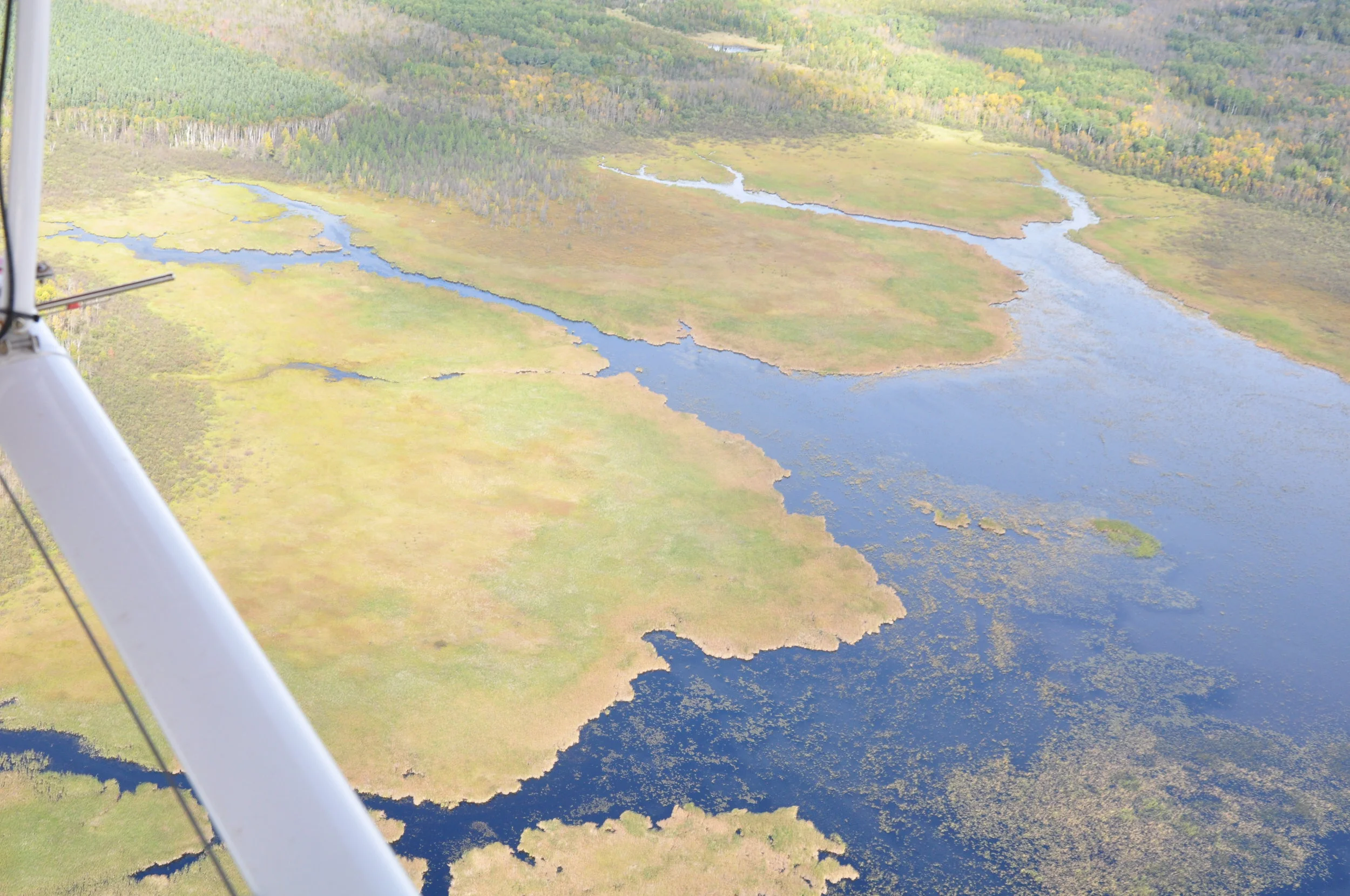Cattail Removal Kicks Off in Voyageurs National Park
Voyageurs National Park staff are working with contractors to remove areas of invasive, hybrid cattail in selected wetlands within Voyageurs National Park from July through October of 2018. Activities include “grinding” up mats of floating cattails with specialized floating barges and then removing the debris using a harvesting barge where it is deposited on shore to decay naturally. Some areas of treated wetlands will also be re-seeded with native aquatic vegetation such as wild rice and bulrushes.
Hybrid cattails have invaded approximately 500-acres of wetlands in Voyageurs, displacing native communities of plants such as wild rice, sedges, rushes, and native cattail. This long-term project will improve habitat for wildlife, provide enhanced opportunities for fishing, and help restore wetlands to more diverse, natural states. More information on the project can be found at: www.nps.gov/voya/learn/nature/cattails.
Work began in early July in a wetland near the Rainy Lake Visitor Center on Rainy Lake. Once completed, efforts will be shifted to remove a large floating mat in Rudder Bay, Kabetogama Lake, before returning to Rainy Lake to treat selected wetlands in Reuter Creek and Dove Bay in the park. Removal operations will only occur during daylight hours, and some noise is generated by the specialized grinding barges. Park visitors are reminded to not attempt to use boats or watercraft in recently treated wetlands to avoid getting stuck, as these areas are naturally shallow and mucky. Follow-up removals will be repeated this summer as necessary to remove any debris.
This project is funded by a variety of organizations including Voyageurs National Park Association (VNPA), Clean Air Act Settlement Fund, the National Park Service, and by the Initiative Foundation and the Outdoor Heritage Fund as part of the Clean Water, Land, and Legacy Amendment.
Photo courtesy National Park Service. Large dense stands of cattail from years without proper management. This is a region wide issue.

